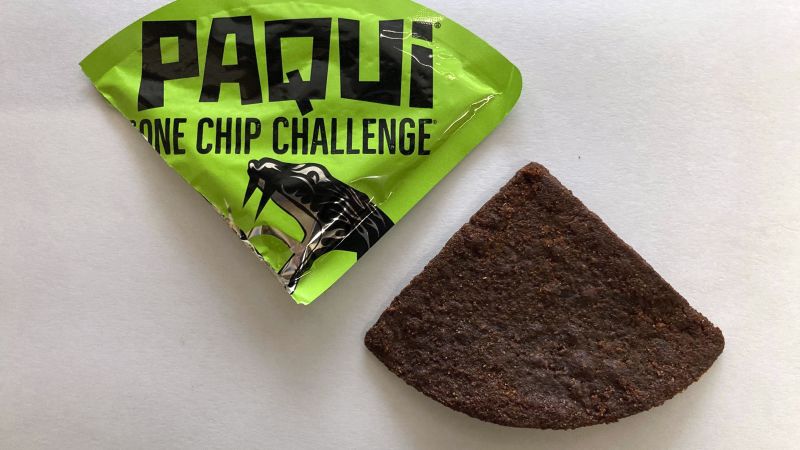The chief medical examiner’s office in Massachusetts has determined that a teenager, Harris Wolobah, died of a heart attack last September after ingesting a tortilla chip containing a high concentration of capsaicin, a chemical compound found in chili peppers. Wolobah had a congenital heart defect and was attempting Paqui’s ultra-spicy “One Chip Challenge” when he consumed the chip seasoned with both the Carolina Reaper pepper and the Naga Viper pepper. Following Wolobah’s death, Paqui voluntarily removed the product from shelves, which was packaged in a coffin-shaped box.
The chief medical examiner’s office confirmed that Wolobah died of cardiopulmonary arrest after ingesting a food substance with high capsaicin concentration. The Carolina Reaper Pepper ranks just under pepper spray on the Scoville scale, which measures the pungency of peppers and chilis. The Naga Viper pepper, also used in the chip, has around 1.2 million heat units on the scale, making it much spicier than a jalapeño pepper. The product was clearly labeled as intended for adults only and was not recommended for individuals sensitive to spicy foods or with underlying health conditions.
A spokesperson for Paqui stated that despite the product adhering to food safety standards, they received reports of teens and others not following the warnings on the product packaging. As a result, they voluntarily removed the product from shelves in September 2023. The spokesperson mentioned that the “One Chip Challenge” has been discontinued as a precautionary measure. The company’s website also announced that they would reimburse consumers for any 2023 Paqui Carolina Reaper + Naga Viper Pepper One Chip Challenge bags that have not been consumed.
This tragic incident highlights the potential dangers of consuming extremely spicy foods, especially for individuals with underlying health conditions. The case also serves as a reminder of the importance of proper labeling and warning signs on food products to prevent such incidents from occurring in the future. The voluntary removal of the product from shelves and the discontinuation of the “One Chip Challenge” by Paqui demonstrate a commitment to consumer safety and responsibility. The company’s decision to reimburse consumers for unused product further emphasizes their dedication to addressing the situation.
In response to the incident, it is crucial for manufacturers, retailers, and consumers to exercise caution when dealing with products containing high concentrations of potentially harmful substances. The tragedy serves as a reminder of the need for heightened awareness and accountability in the food industry to prevent similar incidents from happening in the future. By learning from this experience and implementing stricter safety measures and guidelines, steps can be taken to ensure the wellbeing of consumers and avoid any further tragedies related to food consumption.
The death of Harris Wolobah serves as a somber reminder of the potential risks associated with consuming excessively spicy foods, particularly for individuals with pre-existing health conditions. The decision by Paqui to remove the product from shelves, discontinue the “One Chip Challenge,” and offer reimbursement to consumers demonstrates a commitment to consumer safety and responsible practices. Moving forward, it is essential for food manufacturers to prioritize transparency, warning labels, and safety protocols to prevent similar incidents and ensure the wellbeing of consumers.













